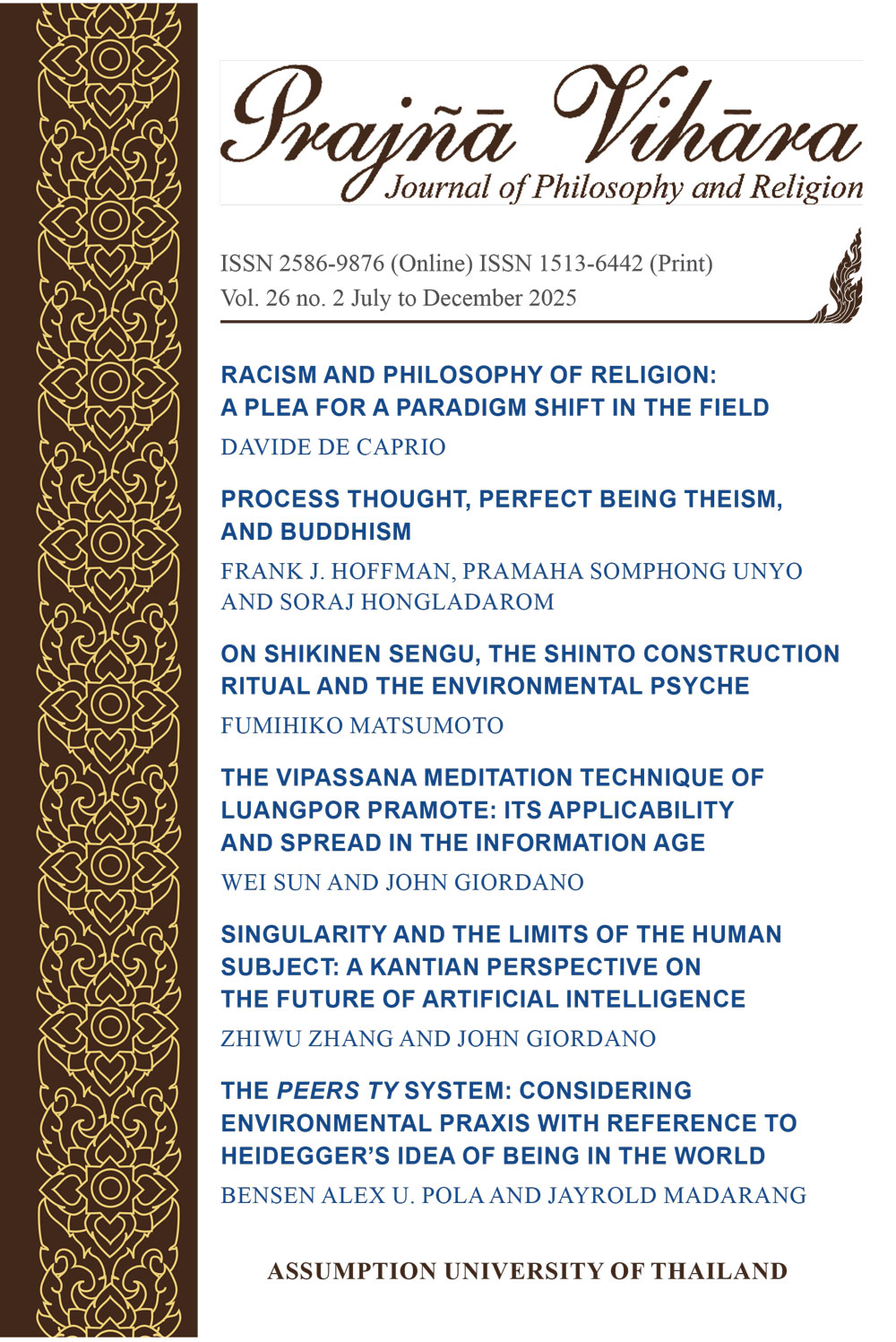THE PEERS TY SYSTEM: CONSIDERING ENVIRONMENTAL PRAXIS WITH REFERENCE TO HEIDEGGER’S IDEA OF BEING IN THE WORLD
Main Article Content
Abstract
This paper will explain a system of environmental praxis which will be called the Peers Ty system. It will discuss it with reference to Martin Heidegger's idea of being-in-the-world. The term Peers Ty system is constructed to reflect its aims. Peers, which means brothers or comrades, is derived from the Pro-Environmental Act, Earth Friendly User, and the Five Rs and the SB way, (Reduce, Re-Use, Recycle, Recover, Re-think, and Stop Burning). While Ty means Thank You and comes from the Trees for Life movement and the You Forest movement. This is an environmental ethics based upon action. The necessity of an environmental praxis for relating to nature can be explicated with reference to Heidegger’s philosophy and his ideas of being in the world and dwelling. This paper will show that the Peers Ty system realizes Heidegger's understanding of an authentic manner of being in the world. It creates a practical system for dwelling on the earth.
Submitted: 20 November 2024
Accepted: 24 June 2025
Article Details
References
Heidegger, Martin. Being and Time. New York: Harper and Row, 1962.
_____. Poetry Language Thought. New York: Harper and Row, 1971.
Pope Francis, "Laudato Si': On Care for Our Common Home." Rome, May 24, 2015, chapter 1, sec 17.

